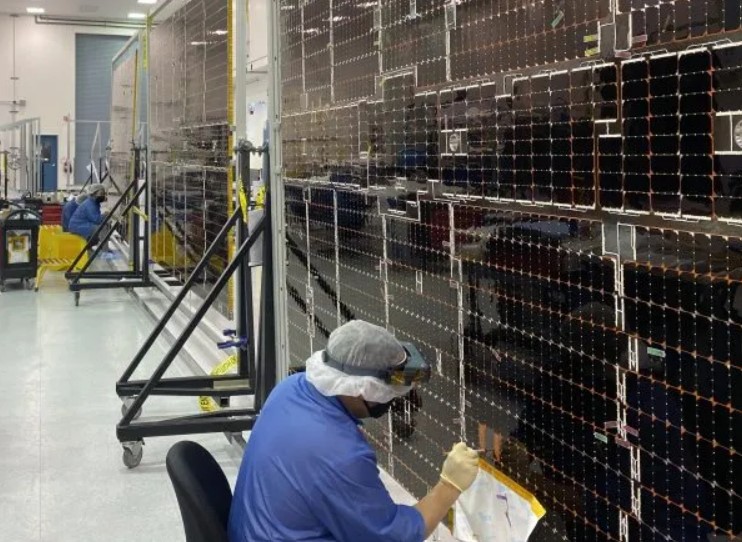At a time of increasing competition in the global space sector, the U.S. government has announced a major investment program to strengthen the competitiveness of domestic space companies. The U.S. Department of Commerce plans to allocate $23.9 million to Rocket Lab to increase the company's R&D and manufacturing capabilities in satellite and spacecraft chip technology.
The grant is the U.S. government's direct support to SolAero Technologies Corp., a Rocket Lab company, to dramatically increase the production of compound semiconductors used in satellites and spacecraft. As a new type of semiconductor material, compound semiconductors have shown a wide range of application prospects and potential in many fields. A compound semiconductor is a semiconductor material that is composed of two or more elements combined together and has certain semiconductor properties such as band width and band structure. Compound semiconductors typically have superior properties such as higher speed, larger capacitance, and greater resistance to high voltages and currents than conventional semiconductors. Due to the diversity of constituent elements and proportions, compound semiconductors can have different properties such as band width and electron mobility, which are suitable for different application needs.
At present, compound semiconductor materials have been widely used in commercial and civilian fields such as military (such as intelligent weapons, aerospace radar, etc.), mobile phones, optical fiber communications, lighting, large workstations, and live broadcast communication satellites.
The U.S. Commerce Department said the funding will increase Rocket Lab's compound semiconductor production by 50% over the next three years, creating a stronger, more resilient supply of space-grade solar cells.

Figure: The U.S. allocated $23.9 million to support Rocket Lab to upgrade satellite and spacecraft chip technology(source:cnBeta)
Rocket Lab is a New Zealand and California-based aerospace company focused on the development and launch of small rockets. Known for its high efficiency and cost-effectiveness, the company's Electron small rocket has successfully launched several small satellites into orbit. This grant will help Rocket Lab further expand its reach, particularly in the manufacture of multi-purpose spacecraft and solar cells.
This grant is not only significant for Rocket Lab, but also for the entire space industry. As satellite and spacecraft technology continues to advance, so does the demand for high-performance semiconductors. This investment by the U.S. government will help advance the development of related technologies and improve the competitiveness of the United States in the global space market.
In addition to the federal government's financial support, the U.S. state of New Mexico has also committed $25.5 million worth of financial subsidies and incentives to Rocket Lab. This reflects the commitment of local governments to promoting local economic development and technological innovation. Rocket Lab plans to use the funds to expand its facility in Albuquerque, which will create local jobs and drive economic growth.
As the global demand for space exploration and utilization continues to grow, this investment will help ensure U.S. leadership in this critical area. By upgrading satellite and spacecraft chip technology, Rocket Lab is expected to play an even more important role in the future space race.






